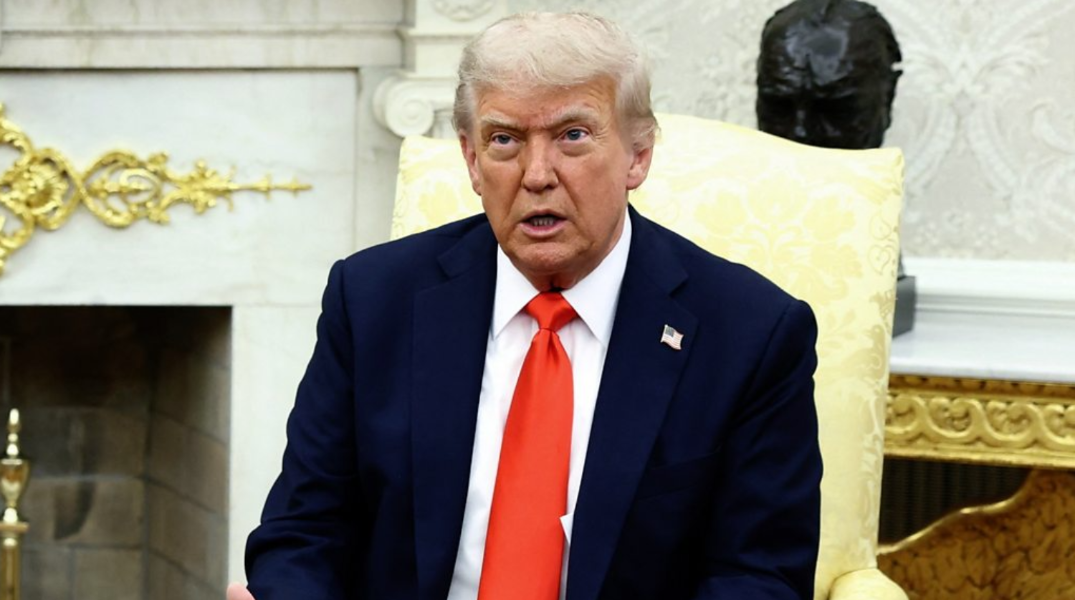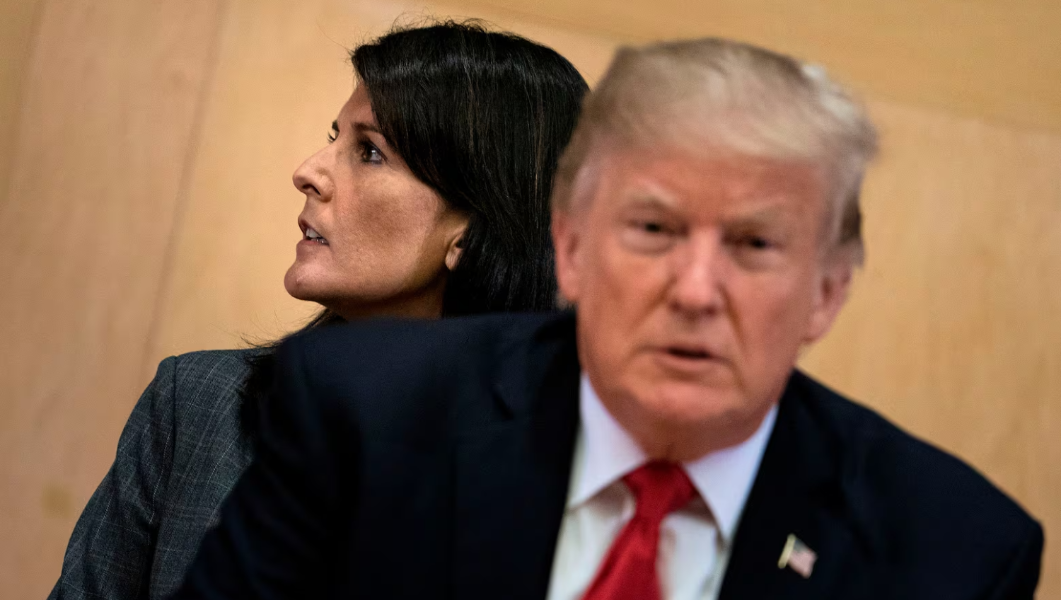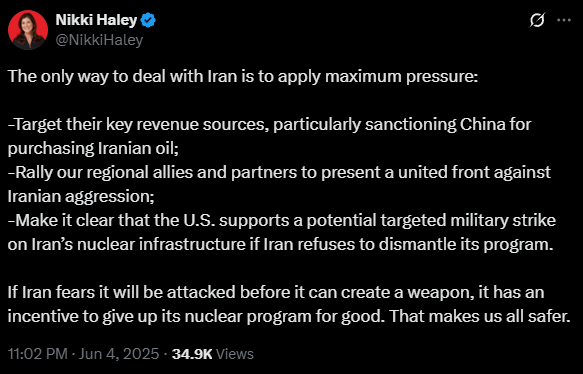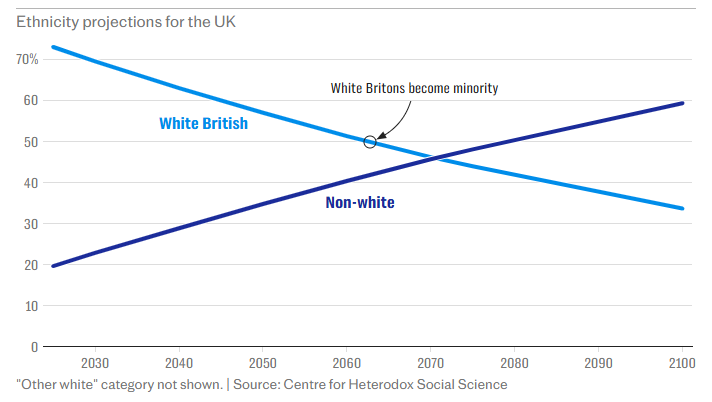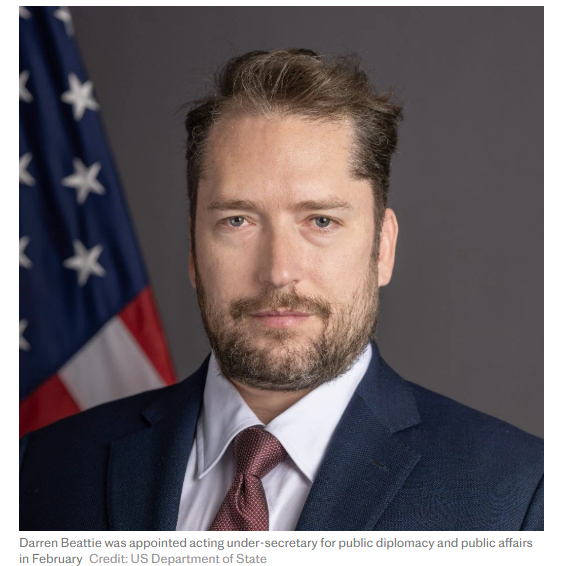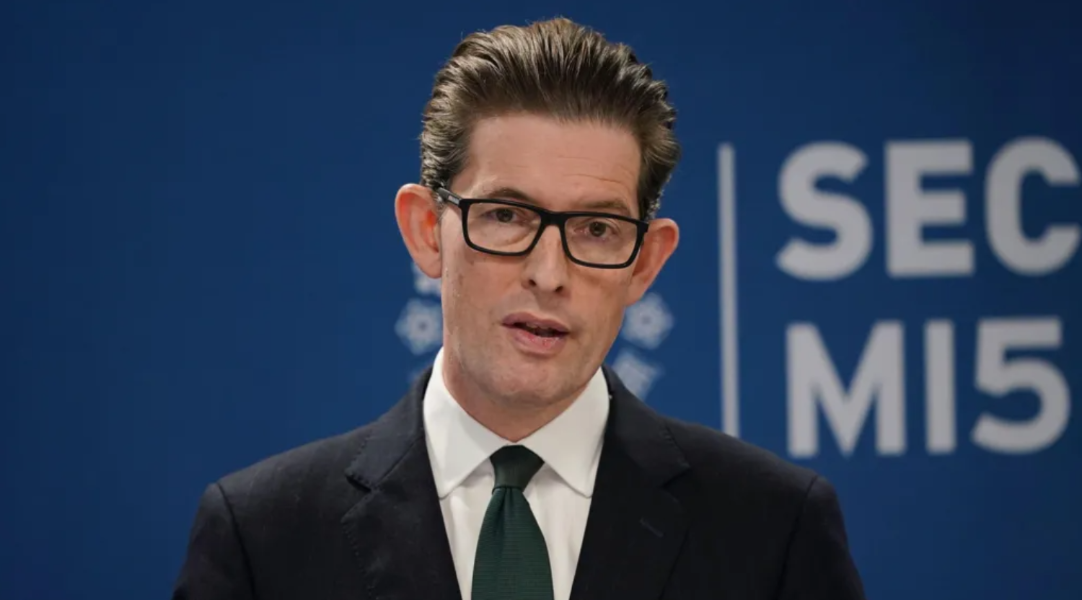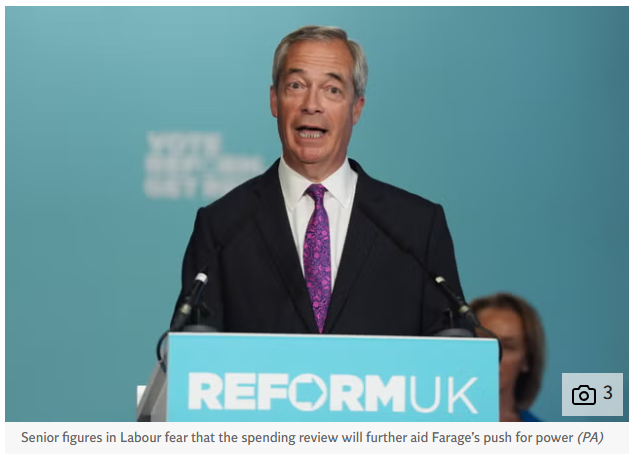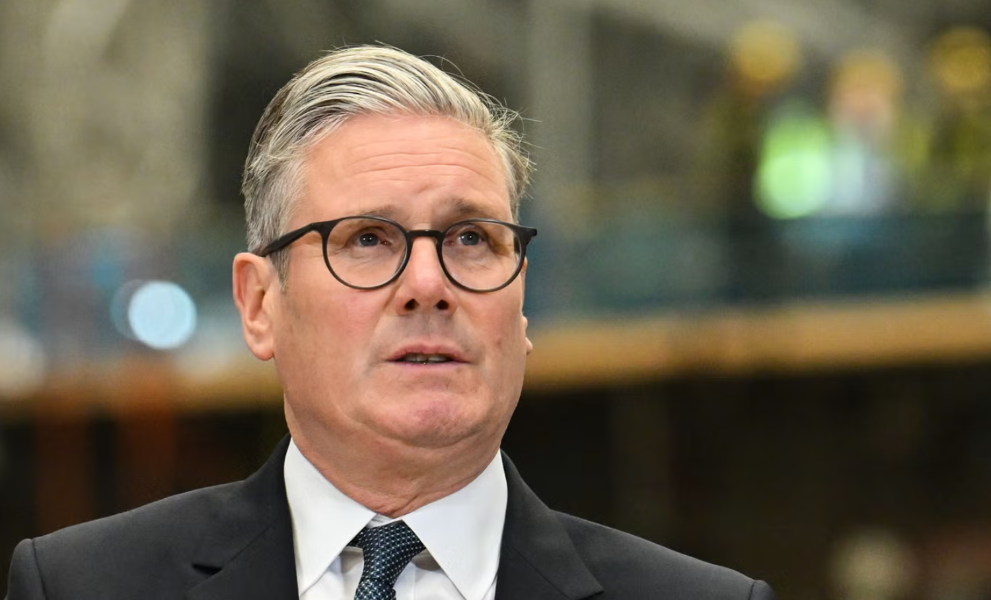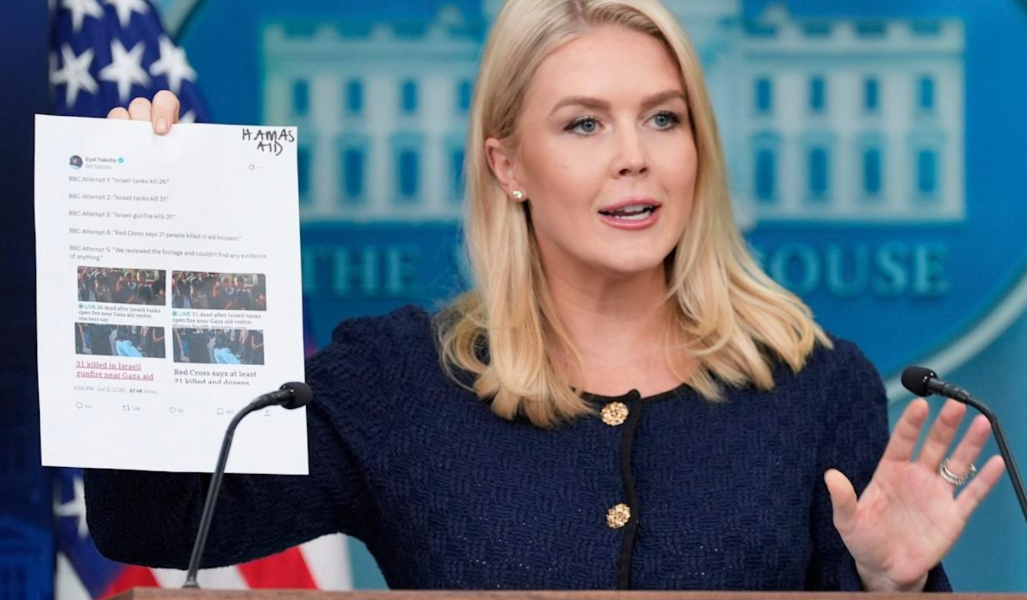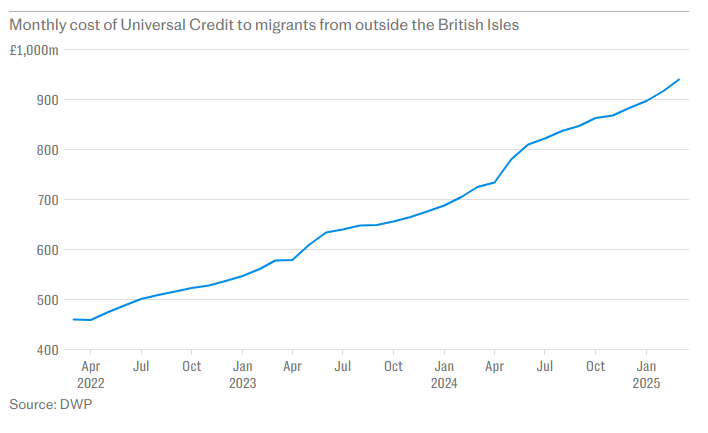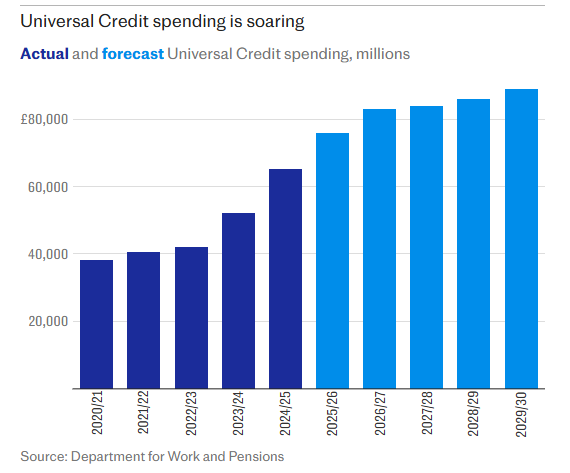-
Posts
10,778 -
Joined
-
Last visited
Content Type
Events
Forums
Downloads
Quizzes
Gallery
Blogs
Everything posted by Social Media
-
UPDATE: Musk Strikes Back: SpaceX Grounds Dragon Spacecraft Amid Clash with Trump Musk Strikes Back: SpaceX Grounds Dragon Spacecraft Amid Clash with Trump Elon Musk has escalated his feud with President Donald Trump by announcing the grounding of Dragon, the spacecraft used to ferry astronauts and cargo to and from the International Space Station. The dramatic move, revealed Thursday on Musk’s social media platform X, marks a significant shift in U.S. space operations and deepens the political fallout between two of the country’s most influential figures. “In light of the President’s statement about cancellation of my government contracts, @SpaceX will begin decommissioning its Dragon spacecraft immediately,” Musk wrote. His post included a screenshot of Trump’s earlier threat to terminate federal subsidies and contracts linked to Musk’s vast portfolio of companies. The implications of SpaceX pulling Dragon from service are potentially severe. Dragon is the only operational spacecraft capable of returning large quantities of cargo to Earth, and it was the first privately built craft to transport humans to the space station. Its grounding could disrupt NASA's ability to execute routine missions, particularly given the limited alternatives for human-rated spaceflight and cargo delivery currently available. NASA, in a measured response, expressed its intention to proceed with the administration’s plans for space exploration. “We will continue to execute upon the President’s vision for the future of space. We will continue to work with our industry partners to ensure the President’s objectives in space are met,” wrote NASA press secretary Bethany Stevens on X. The agency stopped short of commenting on how it would immediately address the vacuum left by SpaceX’s departure from ISS operations. This high-stakes development is the latest in a fast-unfolding feud between Musk and Trump. The rupture began as a simmering disagreement earlier in the week and exploded into public view on Thursday, when Musk accused the president—without presenting evidence—of being named in classified documents connected to the late sex offender Jeffrey Epstein. Trump, for his part, has not shied away from responding in kind. In remarks at the White House, he lashed out at Musk for criticizing his economic policies and downplayed the billionaire’s influence in the 2024 election. He further implied that Musk was turning against him now that Tesla, his electric vehicle company, stands to lose financially under Republican plans to roll back EV tax credits. The situation quickly devolved into a public slugfest, with Trump threatening to eliminate government contracts to Musk’s companies, and Musk countering by taking direct action that could jeopardize critical federal programs. The decision to ground Dragon is not only a technological and logistical setback for the Trump administration but also a calculated political maneuver from Musk, who appears determined to leverage his industrial empire in this personal dispute. As tensions mount, neither man seems willing to back down. Musk’s role in the Trump administration—as head of the now-dismantled Department of Government Efficiency—once signaled an unusual alliance between Silicon Valley innovation and conservative governance. That relationship, however, has now fractured spectacularly, with real-world consequences that could extend far beyond Washington. Musk, whose companies span sectors from space travel to artificial intelligence and automotive technology, has shown he is not afraid to use his platforms—both digital and literal—as weapons in a political fight. The question now is how far he’s willing to go, and how the federal government, already rattled by the abrupt change in space strategy, plans to adapt. With the International Space Station depending heavily on Dragon for both supplies and crew rotations, and with few other options ready to step in, the feud between the billionaire and the president may soon extend beyond rhetoric—into orbit. Adapted by ASEAN Now from The Hill 2025-06-06
-
Please continue here where the topic is already running //Closed//
-
Clash of the Titans: Trump and Musk's Public Fallout Sends Shockwaves Through Washington What began as a quiet disagreement between two of America’s most polarizing figures—Donald Trump and Elon Musk—has erupted into a full-blown feud, with consequences that could reshape the political and business landscapes. The relationship between president and the tech billionaire, once marked by mutual admiration and cooperation, has rapidly deteriorated in full public view, leaving Washington bracing for impact. The tension reached a boiling point during Trump's remarks in the Oval Office on Thursday. With a tone that resembled that of a jilted partner, Trump voiced astonishment at Musk’s recent criticism of his much-touted tax and spending initiatives. He scoffed at the idea that Musk’s financial support played a decisive role in his election victory last year and accused Musk of shifting allegiances simply because Tesla, his electric vehicle company, stands to lose under the Republican plan to scrap EV tax credits. In response, Musk fired back with trademark brevity on his platform X, telling his 220 million followers, “Whatever.” He denied any personal stake in the subsidies, framing his concern around America’s ballooning national debt. “Such ingratitude,” Musk added, dismissing Trump’s assertions and claiming Democrats could have triumphed in the election even without his backing. But Musk didn’t stop there. He launched into a barrage of attacks throughout the day, including a pointed and evidence-free insinuation that Trump might be mentioned in unreleased documents related to convicted sex offender Jeffrey Epstein. The BBC has reached out to the White House for comment, but the damage was already done. This unraveling marks a sharp turn from the powerful alliance the two once shared. Musk had even held a unique position within the Trump administration, heading the so-called Department of Government Efficiency—nicknamed “Doge.” His tenure saw the dismantling of various federal agencies and mass dismissals of public sector employees, an approach that drew both admiration and controversy. Yet, behind the scenes, observers always speculated about when this alliance would crack under the weight of two massive egos. That moment seems to have come. Musk’s formal government role ended just last week, capped with a warm Oval Office farewell and the symbolic gifting of a golden key. That farewell now feels hollow—Trump has made it clear Musk is no longer welcome. “Elon and I had a great relationship,” Trump said on Thursday, notably speaking in the past tense. The feud could have real policy consequences. Congressional Republicans may struggle to maintain unity behind Trump’s legislation if Musk begins to support dissenters with his enormous wealth and influence. The billionaire’s ability to fund political challengers in GOP primaries could pose a serious threat to Trump’s grip on the party. Trump, known for his combative political style, quickly retaliated. “The easiest way to save money in our budget, billions and billions of dollars, is to terminate Elon's governmental subsidies and contracts,” he wrote on his social media platform. Investors were quick to react—Tesla’s stock plummeted 14% on Thursday alone. Still, Musk is far from defenseless. His vast fortune and reach give him the power to shape elections and sway public opinion. While it remains to be seen if he can take down the entire Trump machine, he certainly has the means to make it costly. Democrats, meanwhile, are watching from the sidelines, uncertain whether to embrace Musk or simply enjoy the spectacle. "It's a zero-sum game," Democratic strategist Liam Kerr told Politico. "Anything that he does that moves more toward Democrats hurts Republicans." For now, it seems the political world must adjust to this seismic rift. And if Musk’s words are any indication, the feud won’t be short-lived. “Trump has 3.5 years left as president,” Musk posted on X, “but I will be around for 40-plus years.” Adapted by ASEAN Now from BBC | X 2025-06-06
-
Trump Administration Challenges Columbia University's Accreditation Amid Antisemitism Allegations The Trump administration has taken a striking step in its ongoing confrontation with Columbia University, directly challenging the Ivy League institution’s accreditation status over allegations that it violated federal civil rights laws. According to the U.S. Department of Education, Columbia’s response to reports of campus antisemitism has placed the university in violation of antidiscrimination statutes, potentially jeopardizing its standing as an accredited institution. The department has notified the Middle States Commission on Higher Education, the accrediting body responsible for overseeing Columbia, that the university no longer appears to comply with the legal requirements tied to its accreditation. While this notice does not automatically revoke Columbia’s accreditation—a move that would critically undermine the university’s ability to function and receive federal funding—it signals a significant escalation in federal scrutiny. The department has urged the accrediting commission to work with Columbia to bring it into compliance and warned that “appropriate action” should be taken if the school fails to meet federal standards. “After Hamas’ October 7, 2023, terror attack on Israel, Columbia University’s leadership acted with deliberate indifference towards the harassment of Jewish students on its campus,” said Education Secretary Linda McMahon. “This is not only immoral, but also unlawful.” Columbia University and the Middle States Commission on Higher Education have not yet issued public responses to the federal warning. This development comes at a tense moment in the university’s relationship with the federal government. In March, the Trump administration terminated $400 million in federal grants and contracts previously awarded to Columbia, citing concerns over antisemitism on campus. In response, Columbia accepted an initial set of conditions proposed by the administration. However, the government is now pushing for a broader agreement—a consent decree—that would place Columbia under court supervision to ensure it complies with federal directives. Such a decree would significantly curtail Columbia’s institutional autonomy by involving a judge in monitoring the university’s adherence to civil rights standards. The proposed oversight structure reflects the administration’s insistence that universities, particularly elite institutions, be held accountable for how they handle incidents of discrimination and harassment. Last month, a federal investigation concluded that Columbia had failed to protect Jewish students from harassment by their peers, thereby violating civil rights law. The findings have reinforced the administration’s position that the university's leadership neglected its legal and ethical responsibilities in safeguarding student welfare. The battle between Columbia and the Trump administration is part of a larger national debate over how colleges address rising tensions related to the Israel-Palestine conflict and antisemitism. While critics see the administration’s actions as an overreach into academic governance, supporters argue that federal intervention is necessary to ensure that civil rights are enforced on college campuses. As pressure mounts, Columbia now faces not only the threat of financial loss but also the risk of diminished credibility in the eyes of regulators and the public. Whether the university will agree to more extensive oversight or contest the administration’s demands remains to be seen, but the consequences of this standoff could set new precedents for federal involvement in higher education. Related Topics: Columbia's Firm Response to Protest Gets Trump Administration Support Amid Federal Funding Palestinian Columbia Protester Detained by ICE During Citizenship Appointment Hamas Cheering Protestors at Columbia University Anti-Israel radical at Columbia University event ‘Nothing wrong with being a Hamas fighter’ Pro-Palestinian Protesters Take Over Columbia Hamilton Hall "Intifada" hangs from windows Adapted by ASEAN Now from WSJ 2025-06-06
-
Pride Month’s Original Message Lost in a Sea of Performative Gestures As June rolls around each year, rainbow flags spring up in storefronts, corporations rebrand with vibrant hues, and public institutions declare their support for LGBTQIA+ communities. Yet increasingly, the sentiment behind these displays is being questioned, not for the values they represent, but for the seeming hollowness of their execution. What once stood as a bold call for justice and equal rights now appears, to many, to be a spectacle of performative virtue. Take, for instance, a recent post from South Yorkshire Fire and Rescue. Their official Facebook page featured three employees with brightly painted faces—two adorned with the rainbow colours of the Pride flag, the third with the blue, pink, and white of the transgender flag. “We’re proud to stand with our LGBT+ communities this Pride season and beyond,” the caption read. “Fire doesn’t discriminate. No matter who needs us, we’ll always be there.” It’s a commendable sentiment on the surface, but the question remains: why was this message necessary at all? After all, fire brigades have never required citizens to disclose their sexuality before receiving help. No emergency operator has asked a caller whether they are gay or straight before dispatching firefighters to a burning home. Even in the less tolerant decades of the past, emergency services were not known to withhold help based on sexual orientation. So, what is the message truly meant to accomplish? It feels more like a case of stating the obvious, which makes the fanfare around it seem bewildering. Similar confusion greeted Air Canada’s announcement of its first “all-2SLGBTQIA+ flight,” featuring a crew that identified across the expansive spectrum of sexual and gender identities—lesbian, gay, bisexual, transgender, queer, intersex, asexual, and “two-spirit.” While inclusivity in the workplace is important, it’s unclear what this particular gesture achieved. Most passengers boarding a flight are concerned about safety, punctuality, and comfort—not the spiritual balance of the pilot’s gender identity. “Congratulations to all involved,” the commentary went, “but again, what was the point?” Even Britain’s intelligence services have joined the movement. Sir Richard Moore, head of MI6, declared that the agency is flying the Pride flag for all of June, and publicly affirmed that “your sexual orientation is no bar to you working and thriving at MI6.” This is a significant and welcome change compared to the agency’s past, when being gay could disqualify a person from serving. But is such a declaration still necessary in 2025? Moore also lists his pronouns—“he/him”—on social media, a move that some see as progressive, others as unnecessary. After all, he is titled “Sir,” and the clue about his gender seems hard to miss. In the United States, a different trend is emerging. According to Newsweek, fewer corporations are adopting rainbow-coloured logos this year. Whether this is due to backlash, ridicule from political figures like Donald Trump, or simple consumer fatigue, many suspect it’s because people have started to recognize these gestures as marketing tactics rather than meaningful support. Companies that eagerly fly the Pride flag in Western markets often remain conspicuously silent in countries where LGBTQIA+ rights are under real threat. Meanwhile, in the UK, the so-called “lanyard class”—a term coined by Labour peer Lord Glasman to describe a socially conscious elite prone to moral grandstanding—remains deeply committed to public displays of inclusivity. But these actions may be having the opposite effect. As equality under the law is now largely guaranteed, especially in democratic nations like Britain, the constant signaling can come across as pandering rather than progress. No one denies that discrimination still exists, and Pride Month retains a meaningful place in history. But today, its most visible expressions often feel like vanity projects for institutions and corporations seeking easy applause. Instead of empowering the marginalized, the spectacle increasingly seems to serve those already in power—turning what was once a courageous fight for equality into little more than a polished PR campaign. Adapted by ASEAN Now from Daily Telegraph 2025-06-06
-
Britain Pays the Price for Grid Inefficiencies as Wind Farm Shutdowns Top £500 Million Britain has spent more than half a billion pounds this year switching off wind farms to prevent overloading its outdated power grid, spotlighting an urgent and growing issue in the country’s transition to renewable energy. Known as “curtailment,” this process occurs when wind farms are ordered to stop generating electricity because the current infrastructure lacks the capacity to transport the power where it's needed. So far in 2025, curtailment has cost the country an astonishing £503 million. On just one day this week, grid operators paid £6 million to switch off turbines, while an additional £10 million was spent to bring gas-fired power stations online as backup, according to data from the energy-tracking site Wasted Wind. These combined costs – £16 million in a single day – underscore the broader inefficiencies of a power system struggling to adapt to rapid changes in energy production. The situation has worsened since last year, when curtailment costs totaled £347 million over the same period. The nearly 45% increase in just one year highlights how ill-equipped the national grid is to handle the rising output from renewable sources, especially wind. These costs do not simply vanish—they are passed on to consumers, with households and businesses footing the bill through their electricity payments. On average, these shutdowns are costing the country around £3.3 million per day, or roughly £136,000 every hour. With the problem deepening, the UK Government is under growing pressure to reform the electricity market. One controversial proposal under consideration involves restructuring the national energy market into regional or zonal systems. In such a system, areas would pay different electricity rates depending on their local supply and demand. For Scotland, where many wind farms are located and oversupply is a frequent problem, payments for excess energy would be drastically reduced. However, consumers in regions like London, southern England, and the Midlands – which rely more heavily on imported electricity due to fewer local renewable resources – would likely face higher bills. The Seagreen offshore wind farm in the North Sea, Scotland’s largest facility of its kind, is one example of the waste associated with curtailment. Last year, it was inactive for nearly three-quarters of its scheduled operating time due to grid congestion. Energy companies such as Scottish Power and SSE have voiced concern that market reforms, while potentially solving short-term grid issues, could undermine the financial predictability necessary for long-term investment. “Uncertainty in revenue models could stall critical decisions on new renewable projects,” industry leaders argue. Without continued investment, the UK may fall short of its 2030 target to achieve a clean electricity system – a goal that depends on the rapid deployment of additional renewable energy capacity. Responding to the mounting criticism, a spokesperson for the Department for Energy Security and Net Zero stated, “The National Energy System Operator’s independent report shows we can achieve clean power by 2030 with cheaper electricity, even factoring in constraint payments. Through our clean power action plan, we will work with industry to rewire Britain, upgrade our outdated infrastructure to get renewable electricity on the grid and minimise constraint payments.” Meanwhile, a spokesperson for the National Energy System Operator emphasized their commitment to cost efficiency, saying, “Neso takes its role to deliver a safe, secure and reliable national electricity network at least cost to consumers, extremely seriously. We are constantly looking for new ways to reduce costs associated with balancing electricity supply and demand on a second-by-second basis, as these costs are passed on to consumers in their electricity bill.” As Britain accelerates its energy transition, the challenge now lies in ensuring that infrastructure upgrades keep pace with renewable investment—before consumers and climate goals are left paying the price. Adapted by ASEAN Now from The Telegraph 2025-06-06
-
Haley Slams Trump’s Call with Putin as Undermining U.S. Allies Former United Nations Ambassador Nikki Haley issued a sharp rebuke of President Donald Trump’s recent phone conversation with Russian President Vladimir Putin, calling it “a backhanded slap to all of our allies.” Her condemnation highlights the deepening divisions within the Republican Party over foreign policy and the future of U.S. engagement with adversarial nations like Russia and Iran. Trump, who described the hour-and-fifteen-minute call on his social media platform Truth Social, said that the discussion with Putin included both the ongoing war in Ukraine and the growing urgency around Iran’s nuclear ambitions. While he characterized the conversation as “a good one,” Trump acknowledged it was unlikely to bring “immediate Peace.” He also quoted Putin as saying “very strongly” that Russia would have to respond to a recent drone strike on its airfields, attributed to Ukraine. What drew particular ire from Haley was Trump’s suggestion that Putin might act as a mediator in discussions with Iran over its nuclear program. “It is ludicrous to think we would allow Putin to be chief negotiator between the U.S. and Iran on the Iran deal in exchange for the U.S. helping Russia with Ukraine,” she wrote on X. “This is a backhanded slap to all of our allies.” Haley pointed to the existing military alliance between Russia and Iran as proof that Putin cannot be trusted in any diplomatic role involving Tehran. “Russia has been receiving drones and ballistic missiles from Iran to use in its kidnapping of Ukraine. Iran and Russia are partners,” she emphasized, reinforcing her long-standing position that the United States should exert maximum pressure on the Iranian regime rather than pursue new negotiations. “The only way to deal with Iran,” Haley wrote in a follow-up post, “is to apply maximum pressure. If Iran fears it will be attacked before it can create a weapon, it has an incentive to give up its nuclear program for good. That makes us all safer.” Trump, however, suggested that Putin might have a role to play in accelerating diplomatic progress with Iran. “I stated to President Putin that Iran cannot have a nuclear weapon and, on this, I believe that we were in agreement,” he said. Trump added that Putin had offered to “participate in the discussions with Iran” and might “be helpful in getting this brought to a rapid conclusion.” Still, he acknowledged that Iran is “slow-walking their decision on this very important matter,” stressing that time was running out. Haley, a staunch critic of Iran throughout her diplomatic career, helped pass UN Security Council Resolution 2370 in 2017 to curb weapons access by terrorists—citing Iran’s involvement in destabilizing the region. “As long as we allow the Iranian regime to violate this Council’s prohibitions with impunity, it will be a source of weapons to terrorist groups that will only grow in volume and destructive capability,” she said at the time, warning about Iran’s preparations for conflict in Lebanon. Trump withdrew from the original Iran nuclear agreement in 2018, a move Haley supported. However, his current efforts to build a new deal with Tehran have drawn skepticism, especially given Iran’s dismissive labeling of the new proposal as “nonsense.” Haley’s stance has remained firm. As recently as April, she reiterated her distrust of the Iranian regime. “Iran has violated every agreement they have ever been a part of. We can’t trust them to have any amount of nuclear production. Iran should not have a nuclear program, period,” she declared on X. As Trump flirts with a new diplomatic approach involving adversaries like Putin and Iran, Haley’s critique reflects a broader Republican tension over the direction of U.S. foreign policy—one that pits hardline skepticism against risky overtures for negotiation. Adapted by ASEAN Now from The Daily Beast 2025-06-06
-
Biden-Appointed Judge Halts Deportation of Terror Suspect's Family Amid Legal Battle The wife and five children of Colorado terror suspect Mohamed Sabry Soliman have been granted a temporary reprieve from deportation after a federal judge appointed by Former President Joe Biden intervened in their case. The decision came just as the family, who had been detained by immigration authorities, faced swift removal from the United States. U.S. District Court Judge Gordon Gallagher issued an emergency order on Wednesday, halting the deportation process for Soliman’s wife, 41-year-old Hayam Salah Alsaid Ahmed Elgamal, and their five children — including 18-year-old daughter Habiba Mohamed Sabry Farag Soliman, two additional daughters, and two sons. The family had been detained by Immigration and Customs Enforcement (ICE) on Tuesday. In his ruling, Gallagher stated, “Defendants SHALL NOT REMOVE Hayem El Gamal and her five children from … the United States unless and until this Court or Court of Appeals for the Tenth Circuit vacates this Order.” He emphasized that deporting the family without due process could result in "irreparable harm," adding that the emergency nature of the situation warranted action without notice. The Soliman family originally arrived in the United States from Kuwait in August 2022. According to the Department of Homeland Security (DHS), they were permitted to stay only until February 2023. Soliman, a 45-year-old Egyptian national, filed for asylum a month after entering the country and listed his wife and children as dependents in Denver. He was granted a temporary work permit in March 2023, which expired this past March, and his asylum request remains unresolved. Homeland Security officials detained the family as federal prosecutors pursue a major criminal case against Soliman. He has been charged with committing a hate crime and faces 16 counts of attempted first-degree murder. Authorities allege he attacked participants in a peaceful march advocating for the release of Israeli hostages in Gaza. Twelve individuals were injured in what investigators described as an antisemitic assault. Witnesses reported that a shirtless Soliman shouted “Free Palestine” before allegedly carrying out the attack. DHS Secretary Kristi Noem announced that investigators would examine whether Soliman’s family members had any knowledge of his alleged plan. Prosecutors claim Soliman had been plotting the attack for over a year and had waited until his eldest daughter completed high school before acting. Judge Gallagher’s ruling has temporarily paused the deportation proceedings, but a hearing to determine the future of the family’s immigration status is scheduled for June 13. Gallagher, who was confirmed by the U.S. Senate in a 53-43 vote in March 2023, will oversee further deliberations in the case. If convicted on all charges, Soliman could spend the remainder of his life behind bars. As the legal battles continue, the fate of his wife and children remains uncertain, pending the court's final decision. Adapted by ASEAN Now from NYP 2025-06-06
-
French Efforts to Curb Illegal Crossings Come Too Late for British Politics As the tide of small boat crossings across the English Channel shows little sign of slowing, the latest French promises to step up enforcement offer scant reassurance to British politicians weathering growing public anger. Despite repeated agreements and millions of euros in bilateral funding, the Channel remains an open route for people smugglers and migrants seeking to enter the UK illegally. The French authorities are now reportedly considering more assertive tactics, with officials in Paris debating whether officers should be “armed and wearing body armour when they engage the boats,” a move that would be unthinkable in the British context. “Imagine the furore if that were suggested here,” the author notes, highlighting the political and cultural sensitivities surrounding enforcement on British shores. The reality is that the UK has long leaned on French cooperation in trying to stem the flow of illegal migration. If given the choice, the author admits, “I would choose the French police” over Britain’s Border Force when it comes to facing down the criminal networks facilitating the crossings. Yet this pragmatic endorsement is laced with skepticism. While France does make efforts to intercept and prevent some boats from launching, footage of French officers apparently doing nothing as vessels depart has infuriated UK observers. British governments of both stripes have, time and again, unveiled bilateral agreements with Paris in the hope of halting the crossings. The latest of these, covering 2023 to 2025, carries a price tag of €541 million — roughly £476 million at the time of the deal. “We pay a lot for the privilege too,” the author dryly observes. Still, the return on that investment has been minimal in terms of visible, sustained impact. Even acknowledging that the crossings might be worse without French action, this is “cold comfort to British politicians facing mounting public anger at a completely unacceptable level of crossings.” The problem, in part, is that France lacks much incentive beyond British funding to prevent the migrants from continuing their journey. Their destination, after all, is not Calais but Dover. Paris has long argued that the UK itself fuels the problem by maintaining a system that draws migrants — a “poorly-policed black economy,” for instance — which acts as a magnet and turns France’s northern coast into a de facto staging ground. Without addressing such pull factors, the Channel crossings are unlikely to end, no matter how many deals are signed. There is some suggestion that the latest agreement could mark a turning point. France has now agreed, at least on paper, to engage boats at sea — a shift from previous refusals. However, the practical enforcement of this change remains uncertain. Much, as always, will depend on how French authorities interpret the need to “respect the law of the sea.” The UK Conservatives, having spent years and millions securing French cooperation, now learn from this deal that it is “for the first time” that both governments have acknowledged “the need for action to prevent irregular crossings of the Channel.” The belatedness of that realization speaks volumes. And even now, questions remain about French political will. As President Emmanuel Macron faces growing pressure from the Rassemblement National, how likely is he to prioritize British concerns? “Is he really going to want Sir Keir Starmer boasting of his strenuous efforts to keep illegal migrants in France, all for the benefit of Les Rosbifs?” the author asks. “I’ll believe it when I see it.” Adapted by ASEAN Now from The Telegraph 2025-06-06
-
Wagner Group Accused of Orchestrating Arson Attack on London Business with Ukraine Links A high-profile terrorism trial has begun at London’s Old Bailey, centering on a group of six men accused of carrying out an arson attack in east London at the behest of Russia’s notorious Wagner Group. Prosecutors allege the plot targeted a business that supplied StarLink satellite equipment to Ukraine — a direct link to the ongoing war effort against Russia. The attack, they claim, was designed to serve the interests of the Wagner mercenary group, which the UK designated as a terrorist organization in September 2023. The fire occurred on March 20, 2024, when two units at the Cromwell Industrial Estate in Leyton were deliberately set ablaze. According to prosecutors, the operation was no random act of vandalism but a coordinated strike ordered by Wagner operatives. “Earl was knowingly acting at the behest of the Wagner Group,” said Duncan Penny KC, the lead prosecutor, as he addressed the jury. He added that Earl “commissioned the arson attack on the warehouses,” describing the act as part of a larger campaign orchestrated by the Russian-linked military contractor. Four men — Jakeem Rose, 23, Ugnius Asmena, 20, Nii Mensah, 23, and Paul English, 61 — stand accused of carrying out the arson. They allegedly livestreamed the attack, an act prosecutors say was intended both to intimidate and to showcase Wagner’s reach. The court heard how the inferno required the intervention of eight fire engines and sixty firefighters to extinguish. Two other individuals, Ashton Evans, 20, and Dmitrijus Paulauskas, 23, are also on trial. They are charged with failing to disclose information about terrorist activity. The prosecution claims they not only had knowledge of the arson but were planning additional attacks, including arson on a restaurant and a wine shop in Mayfair. Even more alarmingly, they allegedly plotted the kidnapping of the businesses’ owner, a multi-millionaire Russian dissident. These charges mark the first case brought under the UK’s recently introduced counter-espionage laws, which were enacted to address increasing concerns about foreign interference and state-sponsored terrorism. The Crown argues that the evidence linking the defendants to the Wagner Group is "overwhelming," and reflects a broader effort by Russian actors to disrupt support for Ukraine from within the UK. All six men have pleaded not guilty to the charges, which include aggravated arson and withholding information regarding terrorist acts. The trial is expected to examine the defendants’ communications, online activities, and the nature of their connections with Wagner operatives. As the case unfolds, it underscores the British government’s concern about hybrid warfare and the use of unconventional tactics — like cyberattacks and sabotage — to undermine Western efforts to support Ukraine. The outcome of the trial could set a precedent for how the UK handles future threats involving foreign state-linked entities and domestic collaborators. Adapted by ASEAN Now from Sky News | AP 2025-06-06
-
Future UK Demographics Could See White British Minority by 2063, Study Suggests White British people could become a minority in the United Kingdom within the next 40 years, according to new research that forecasts sweeping demographic changes driven by migration and differing birth rates. The study, led by Buckingham University professor Matt Goodwin, projects a steady decline in the White British share of the population, which currently stands at 73 per cent, dropping to 57 per cent by 2050 and falling below 50 per cent by 2063. Professor Goodwin’s analysis, based on data from the Office for National Statistics and national census figures, considers trends in birth, death, and migration rates through to the end of the 21st century. His findings indicate that, by 2100, just four in ten people living in the UK will have been born in the country to two UK-born parents. “By the end of the current century, most of the people on these islands will not be able to trace their roots in this country back more than one or two generations,” Goodwin said. The report also predicts a significant demographic shift in terms of ethnicity and religion. It estimates that the proportion of foreign-born and second-generation immigrants in the UK will grow from under 20 per cent to 33.5 per cent in the next 25 years. By the year 2100, around 60 per cent of the UK population is expected to either be immigrants themselves or have at least one immigrant parent. Religious identity is also expected to change. The Muslim population, currently at around seven per cent, is projected to rise to 19.2 per cent by the end of the century. Goodwin emphasized that these transformations pose fundamental questions for the UK’s political and social structures. “This raises enormous questions about the capacity of our country and leaders to unify people around a shared sense of identity, values, ways of life, and culture,” he said. He warned that without adequate attention to public concern, the nation could face significant division, adding, “There is a very real risk of us becoming what Sir Keir Starmer referred to in May as ‘an island of strangers’.” The analysis suggests that the overall white population in the UK, including both White British and other white groups, would become a minority by the year 2079. Goodwin stressed the need for political leaders to acknowledge and engage with the concerns of voters who are uneasy about the pace of demographic change. “Their concerns will need to be recognised, respected and addressed,” he said. Some of these changes are already evident in urban centres. The 2022 census revealed that cities like London and Birmingham are now minority White British. A 2023 report by the Office for National Statistics stated that 46 per cent of Londoners were from Black and minority ethnic backgrounds. Similarly, data from the Birmingham City Observatory showed that the white population in the city fell from 57.9 per cent in 2011 to 48.6 per cent by 2021. The report concludes that the UK is undergoing a profound demographic transformation that will require thoughtful leadership and policy responses. Whether the country can successfully navigate this change without fragmenting socially or politically remains an open question—one that, according to Goodwin, must be confronted in the years to come. Adapted by ASEAN Now from The Telegraph 2025-06-06
-
Trump Enacts New Travel Ban Affecting 19 Countries, Citing National Security Concerns U.S. President Donald Trump has once again invoked national security as the reason behind a sweeping travel ban, which now targets nationals from 19 countries. The White House announced that the order, which restricts travel to the United States from 12 nations and imposes partial limits on seven more, will take effect on Monday at 12:01 a.m. local time. Trump’s move, which mirrors a similar directive issued during his first term in 2017, comes amid renewed anxieties over foreign terrorism and immigration. According to the proclamation, travel is now fully banned for nationals of Afghanistan, Myanmar, Chad, Congo-Brazzaville, Equatorial Guinea, Eritrea, Haiti, Iran, Libya, Somalia, Sudan, and Yemen. In addition to this list, nationals from seven other countries — Burundi, Cuba, Laos, Sierra Leone, Togo, Turkmenistan, and Venezuela — will face partial restrictions. “The safety of American citizens must always come first,” Trump declared in a video posted to his Truth Social platform. “The recent terror attack in Boulder shows just how real the threat is when we fail to properly vet who we allow into our country.” On Sunday, 12 people were injured during an attack in Boulder, Colorado, where a man allegedly hurled incendiary devices and wielded a makeshift flamethrower at a gathering in support of Israeli hostages. The suspect, reportedly an Egyptian national, reignited fears about potential loopholes in the vetting process — although Egypt is not among the countries included in the new ban. The omission of Egypt has raised eyebrows, particularly given Trump’s well-documented relationship with Egyptian President Abdel Fattah al-Sisi, whom he once referred to as his “favourite dictator.” Still, the administration insists the list is not politically motivated but based on what it calls “material risks to U.S. national security.” White House officials emphasized that the measure is subject to periodic review and that the list could be revised if “material improvements” are made by the affected nations. Similarly, more countries could be added in the future “as threats emerge around the world.” Despite the ban’s breadth, there are several key exemptions. Lawful permanent residents of the U.S., dual nationals from non-listed countries, and individuals holding certain types of visas — including athletes participating in major international events such as the 2026 World Cup or the 2028 Olympics — are exempt. Additionally, Afghan nationals with Special Immigrant Visas and Iranians fleeing religious or ethnic persecution can still seek entry. The Secretary of State also retains the authority to issue waivers on a “case-by-case basis,” especially if doing so would “serve a United States national interest.” Unlike the 2017 travel ban, which triggered chaos at airports and widespread confusion due to its abrupt rollout, the current measure includes a brief lead-in period to prevent similar disruptions. Nevertheless, critics are expected to challenge the decision in court, questioning both the legality and the motivations behind the policy. As with previous travel bans during Trump’s tenure, the latest move is likely to stoke debate about national security, civil liberties, and the United States’ role in providing refuge to those fleeing violence and oppression. For now, however, the administration appears determined to double down on its hardline approach to immigration. Adapted by ASEAN Now from BBC 2025-06-05
-
A topic clean up has taken place with a number of off topic posts and replies removed, this is the second public post warning against this. Please discuss the topic or move on. In addition a number of misquoted posts from @JakeC have been removed. Tragedy in Gaza: Dr. Hamdi al-Najjar succumbs to his injuries after losing nine children
-
Trump Appointee Draws Scrutiny Over Kremlin Ties and Dismantling of U.S. Disinformation Unit Darren Beattie, a senior Trump administration official at the State Department, has come under intense scrutiny over his ties to Russia and a controversial decision to shut down the U.S. government’s main agency fighting Kremlin propaganda. Beattie, who was appointed acting under-secretary for public diplomacy and public affairs in February, is married to a Russian woman whose family has deep ties to the Kremlin. The revelations have sparked alarm among U.S. diplomats and national security officials, particularly in light of Beattie's outspoken admiration for Moscow and Beijing and his efforts to dismantle the government’s Counter Foreign Information Manipulation and Interference hub, known as R/FIMI. Beattie, a former Trump speechwriter who was dismissed from the administration in 2018 for reportedly attending a white nationalist event, reemerged as a figure in far-right media circles before returning to government. In 2021, he married Yulia Kirillova, a Russian national educated in Moscow and later in Canada and Washington, D.C. According to public records and social media, her uncle, Sergei Chernikov, is a wealthy Russian businessman with a history of political involvement and a documented relationship with Vladimir Putin. Chernikov once received a personal letter of thanks from Putin for his support during the Russian leader’s initial rise to power and later held posts in Russia’s natural resources ministry and as deputy governor in Siberia. The familial connection, combined with Beattie’s history of pro-Kremlin statements, has raised serious questions within the State Department. “The rise of non-woke (China) and anti-woke (Russia) geopolitical competitors to the Globalist American Empire is not a bad thing,” Beattie wrote in October 2021. In other posts, he praised Putin as “brave and strong” and declared that “Nato is a much greater threat to American liberty than Putin ever was.” He even went so far as to say, “The funny thing is just about every Western institution would improve in quality if it were directly infiltrated and controlled by Putin.” Sources within the State Department voiced concerns about Beattie’s security clearance, with some questioning whether he underwent standard vetting procedures. Trump had previously bypassed standard clearance processes during his presidency, citing backlogs. Beattie reportedly took a keen interest in classified information about Russia while pursuing his agenda to dismantle R/FIMI, the agency responsible for countering foreign disinformation from adversaries like Russia, China, and Iran. The unit, which had a modest budget of $50 million, was shuttered in April, with Beattie telling staff it was “severely misaligned” with the administration’s goals. Beattie’s media outlet, Revolver, had long campaigned against R/FIMI, accusing it of operating a “censorship network” aimed at silencing conservative voices. Upon his appointment, Beattie moved quickly to neutralize the agency, cutting off communications, firing contractors, and initiating what some insiders described as a “witch hunt” targeting staff correspondence with journalists and references to Trump and his allies. During the same period, Beattie reportedly sought to reestablish cultural exchange programs with Russia, including initiatives focused on ballet and hockey, raising further concerns about the direction of U.S. diplomacy. MIT Technology Review reported that he also attempted to obtain internal R/FIMI records shortly before its closure, suggesting he aimed to portray the agency as hostile to conservative politics. In a statement, Beattie dismissed the allegations as “malicious defamatory trash that is beneath the standards of even the British tabloid press.” A senior State Department official came to his defense, saying, “No one in America cares about a British gossip column. This is all fake news and low even for tabloid standards. Darren is a tremendous colleague who is committed to advancing President Trump’s America First agenda. In a few short months, he has been able to spearhead high-level projects that have been critical in advancing a foreign policy that puts our national interests first.” Beattie currently holds the role in an acting capacity and would need Senate confirmation to remain in the post permanently. Under federal rules, his tenure is limited to 210 days. Allies have suggested he may be moved to a different position that does not require Senate approval, as questions continue to mount about his background, intentions, and links to foreign powers. Adapted by ASEAN Now from The Telegraph 2025-06-05
-
Trump Policies Credited as Critics Mock Washington Post’s “Mystery” Over Fentanyl Decline The Washington Post is under fire from conservative circles and even the White House after publishing an article expressing confusion over a sharp decline in fentanyl trafficking across the southern U.S. border. Describing the drop as a “mystery,” the Post's framing has sparked widespread mockery, with critics accusing the liberal-leaning outlet of downplaying the effectiveness of the Trump administration’s border security measures. Fentanyl, a potent synthetic opioid responsible for tens of thousands of deaths annually in the U.S., is often smuggled in by drug cartels through both southern and northern border points. In 2024, the CDC linked fentanyl to 48,422 deaths nationwide, underscoring its lethal impact on American communities. As a central promise during his campaign, President Trump vowed to dismantle fentanyl trafficking networks by tightening border security and addressing illegal immigration. Since assuming office, he has mobilized U.S. troops to the southern border, designated drug cartels as “foreign terrorist organizations,” and imposed sanctions on cartel leaders in an effort to disrupt their operations. Recent statistics released by the Center for Immigration Studies (CIS) suggest that these actions may be yielding results. According to the CIS, law enforcement seizures of fentanyl—a key indicator of broader smuggling activity—have decreased by 50% since the November election. The Washington Post acknowledged a similar trend, noting that seizures have dropped nearly 30% compared to the same period in 2024. However, the Post's interpretation of this decline puzzled many. “After years of confiscating rising amounts of fentanyl, the opioid that has fueled the most lethal drug epidemic in American history, U.S. officials are confronting a new and puzzling reality at the Mexican border. Fentanyl seizures are plummeting,” the article stated, referring to the trend as “something of a mystery.” The article speculated on several possible explanations, including internal cartel disruptions, alternative trafficking routes, raw material shortages, and even a potential dip in user demand. It also raised concerns that Trump’s budget cuts could jeopardize public health programs for addiction treatment and overdose reversal. The piece was met with derision from conservatives, who viewed the “mystery” framing as an unwillingness to credit the Trump administration. Rep. Tom Tiffany (R-Wis.) wrote on X, “The Washington Post is reporting a ‘mysterious drop’ in fentanyl seizures at the southern border. Mystery solved! The Trump effect is working.” Conservative commentator Charlie Kirk was more scathing, posting, “Four months into the Trump administration, The Washington Post is marveling at the ‘mysterious’ drop in fentanyl seizures on the Mexican border … Is the Post simply lying, or are their reporters as dumb as the people they’re writing propaganda for?” Even the Department of Homeland Security chimed in, replying via its official X account, “It’s no mystery. On day one, [President] Trump closed our borders to drug traffickers.” The department cited a 54% reduction in fentanyl trafficking at the southern border from March 2024 to March 2025, adding, “The world has heard the message loud and clear.” White House officials also responded with blunt remarks. Press Secretary Karoline Leavitt labeled the Post “pathetic,” while Communications Director Steven Cheung remarked, “They can’t stand that President Trump’s strong border policies have led to a DECREASE in fentanyl coming into the U.S.” Abigail Jackson, another spokesperson, reinforced this stance during an interview with Fox News Digital. “The drop in fentanyl seizures at the border is only a mystery to Washington Post,” she said. “As of March, fentanyl traffic at the Southern Border had fallen by more than half from the same time last year – while Joe Biden’s open border was still terrorizing America. Everyone else knows the simple truth: President Trump closed our border to illegal drug traffickers and Americans are safer because of it.” As of now, The Washington Post has not responded to Fox News Digital’s request for comment. Adapted by ASEAN Now from NYP 2025-06-05
-
Trump Justice Department Probes Biden’s Use of Autopen in Controversial Family Pardons In a move that has drawn sharp political scrutiny, the Trump administration’s Justice Department has launched an investigation into former President Joe Biden’s use of the autopen to sign a series of pardons and commutations during his final days in office. Among the pardons under review are those granted to five of Biden’s own family members, as well as 37 commutations that converted federal death sentences to life imprisonment. The investigation was confirmed by an internal email obtained by Reuters, in which Ed Martin, the Justice Department’s pardon attorney, told staff he had been instructed to examine the legality and propriety of the documents. “The investigation centred around whether Biden was competent and whether others were taking advantage of him through use of autopen or other means,” Martin wrote in the email. The autopen—a device that automatically reproduces a signature—has become the focal point of allegations first raised by conservative outlets and championed by Trump. The Heritage Foundation, a right-wing think tank, suggested earlier this year that nearly every document issued under Biden’s presidency bore the same signature, calling into question whether Biden personally approved them. The organization pointed to documents signed even while Biden was vacationing in the U.S. Virgin Islands in late 2022. Samuel Dewey, a lawyer affiliated with the Heritage Foundation, elaborated on the suspicions during an appearance on Real America’s Voice, stating that while most signatures looked machine-generated, the one on the pardon of Biden’s son Hunter appeared different. “Shaky,” he described it. Hunter Biden, who pleaded guilty to tax violations and was convicted on firearms charges, received a pardon from his father in December. Adding to the controversy, Biden also pardoned several other family members, including his brothers James and Frank Biden, his sister Valerie Biden Owens, and their respective spouses, John Owens and Sara Biden. While the internal email did not name which pardons were under direct investigation, Martin confirmed that the scope included the 37 death penalty commutations issued by Biden, as well as all family-related clemency orders. On January 20, just before departing the White House, Biden addressed his controversial decisions, stating that he aimed to shield his family from “future politically motivated investigations” likely to come under the returning Trump administration. Trump has repeatedly cast doubt on Biden’s mental acuity, particularly in the final stretch of his term. He has taken to Truth Social to allege that many pardons were issued without Biden’s knowledge or consent. “In other words, Joe Biden did not sign them but, more importantly, he did not know anything about them!” Trump wrote. He further accused members of the January 6 committee—some of whom received clemency—of engineering their own pardons while Biden was allegedly unaware, calling them “void, vacant and of no future force of effect.” Though Martin noted last month that he did not view autopen use as “necessarily a problem,” he nonetheless affirmed that the circumstances surrounding the Biden pardons “warranted scrutiny.” Amid growing questions about Biden’s health following his cancer diagnosis and his recent decision to withdraw from the 2024 race, the investigation into the final actions of his presidency has intensified partisan tensions. Despite the constitutional authority granted to presidents to issue pardons and commutations without oversight, Trump’s Justice Department appears determined to challenge the legitimacy of Biden’s final clemency decisions—especially those affecting political adversaries or members of his own family. Adapted by ASEAN Now from The Times 2025-06-05
-
BBC Accuses Security Service of Repeated Deception Over Neo-Nazi Agent MI5 deliberately and repeatedly misled the courts in its defense of a neo-Nazi informant who abused women, the BBC has claimed before a panel of High Court judges. In a case that has raised serious concerns about the integrity of the Security Service and the limits of government secrecy, the corporation argued that the threshold had been met for contempt of court proceedings to be initiated against MI5 and three of its officers. Sir James Eadie KC, representing MI5, issued what he called an "unreserved apology" on behalf of the agency but maintained that "the errors that had been made had not been deliberate." Despite this, the High Court panel—including Lady Chief Justice Baroness Sue Carr, Dame Victoria Sharp, and Mr Justice Chamberlain—reserved judgment on whether the case should proceed further. The dispute began in 2022 when MI5 attempted to prevent the BBC from publishing a report about the man known only as X, a violent neo-Nazi and misogynist who is alleged to have used his status as a state agent to intimidate and control a former partner, referred to publicly as "Beth." MI5 insisted in court that it had not broken its strict “neither confirm nor deny” (NCND) secrecy protocol regarding X’s status. However, in February, the BBC presented phone recordings and notes that showed otherwise. According to the BBC, an MI5 officer had explicitly confirmed X’s role as an agent while attempting to convince a journalist to drop the investigation. This revelation directly contradicted previous sworn statements made by the Security Service in three separate court proceedings. As a result, MI5 conceded in this week’s hearing that it could no longer maintain its NCND stance in this case. The fallout from this admission has far-reaching consequences, including the opening up of previously closed evidence that had excluded both the BBC and Beth from proceedings. Kate Ellis, solicitor for Beth, welcomed the development, stating, “It’s a huge outcome for Beth. She's had to fight this all the way to the High Court. This case has really undermined MI5’s credibility in the courts.” Beth’s barrister, Charlotte Kilroy KC, echoed the BBC's argument, telling the court there had been “copious levels of dishonesty” in MI5’s handling of the matter—failures which, she said, were not fully addressed in the agency's own internal investigations. Contempt of court, which can result in fines or imprisonment of up to two years, is a serious charge that applies to actions obstructing justice or compromising the legal process. The BBC’s legal counsel, Jude Bunting KC, asked the court to consider contempt proceedings not only against MI5 but also against three individual officers—one of whom directly confirmed X’s identity in a recorded phone call and another, known as Witness A, who delivered false evidence in court. Bunting criticized MI5’s internal review, conducted by Sir Jonathan Jones KC, noting that it had failed to interview two key witnesses and that the explanations offered to the court “lack candour.” “There is a real concern,” he said, “that the court has not been given a full explanation of what went wrong.” Sir James Eadie, speaking on behalf of the Attorney General and MI5, reiterated the agency's apology and insisted that senior leadership, including Director General Sir Ken McCallum, acted promptly once the issue came to light. “Everyone from the director general downwards acknowledges the seriousness caused,” he said. However, Eadie maintained that the internal investigation had been "full and comprehensive" and found that while mistakes were made, “there had been no misleading or lying.” The judges are now considering whether the case should move forward, in what may prove to be a landmark decision on the accountability of the UK’s intelligence agencies. Adapted by ASEAN Now from BBC 2025-06-05
-
Chinese Nationals Accused of Smuggling Agroterrorism Fungus into U.S. Lab Two Chinese nationals have been charged in the United States for allegedly attempting to smuggle a biological pathogen into the country, a case that federal authorities say poses significant national security risks. Yunqing Jian, 33, and Zunyong Liu, 34, face multiple charges including conspiracy, smuggling goods, false statements, and visa fraud, according to the U.S. Attorney’s Office for the Eastern District of Michigan. The federal complaint alleges that Liu attempted to bring a dangerous fungus, Fusarium graminearum, through Detroit Metropolitan Airport. The fungus is known to infect vital crops such as wheat, barley, maize, and rice, causing a disease that can decimate agricultural yields. If consumed in contaminated food, the pathogen can lead to vomiting and liver damage. According to the U.S. Attorney’s Office, the fungus has been described in scientific literature as a “potential agroterrorism weapon,” responsible for “billions of dollars in economic losses worldwide each year.” Authorities allege that Liu intended to study the fungus at a laboratory at the University of Michigan, where Jian, his girlfriend, was employed. Investigators further claim Jian received research funding from the Chinese government and is a member of the Chinese Communist Party. United States Attorney Jerome F. Gorgon Jr. did not mince words in describing the severity of the situation. “These two aliens have been charged with smuggling a fungus that has been described as a ‘potential agroterrorism weapon’ into the heartland of America, where they apparently intended to use a University of Michigan laboratory to further their scheme,” he stated. “The allegations raise the gravest national security concerns.” The joint investigation was conducted by the FBI and U.S. Customs and Border Protection. Jian is scheduled to appear in court in Detroit, Michigan, on Tuesday. As of now, there has been no public comment from the University of Michigan or the Chinese embassy in Washington, D.C., though both have reportedly been contacted for a response. This case surfaces amid increasing tensions between Washington and Beijing. The charges were filed just days after the Trump administration announced plans to “aggressively” revoke the visas of Chinese students studying in the United States. On the diplomatic front, Beijing has criticized Washington for what it described as a severe violation of a recent trade truce reached in Geneva, where both nations had agreed to reduce tariffs on a range of goods. Adding to the tense atmosphere, another Chinese national—this time a student at the University of Michigan—was charged earlier this week with voting illegally in the 2024 U.S. election, further fueling debate about the presence and activities of foreign nationals in sensitive U.S. institutions. The case involving Jian and Liu is now seen as part of a broader narrative of deteriorating U.S.-China relations, with implications stretching beyond criminal courtrooms and into the spheres of national security, agriculture, and international diplomacy. Related Topic: Trump Administration Targets Chinese Students in New Visa Crackdown Adapted by ASEAN Now from BBC | X 2025-06-05
-
Labour Rift Deepens as Rachel Reeves Faces Spending Review Showdown Chancellor Rachel Reeves is at the centre of an escalating internal battle within the Labour cabinet as tensions mount over her upcoming spending review. The conflict, described by insiders as a “proxy war”, is pitting senior ministers against each other and against Reeves, as concerns grow that key manifesto promises could be abandoned in the face of looming budget constraints. Reeves, tasked with defining the government’s fiscal direction, is under mounting pressure to explore alternative revenue sources—chief among them, wealth taxes—rather than resorting to spending cuts. The Treasury’s tight financial limits are leaving little room for manoeuvre, and this pressure is compounded by likely reversals on major cost-saving plans such as scrapping winter fuel payments for millions of pensioners and lifting the controversial two-child benefit cap. Combined, these changes could add up to £5 billion in additional spending, significantly narrowing Reeves' fiscal options. Major departments, including Yvette Cooper’s Home Office and Angela Rayner’s Ministry of Housing, Communities and Local Government, remain locked in budgetary disputes just days before the chancellor is due to present her plans on Wednesday, June 11. Although Education Secretary Bridget Phillipson is reported to have reached an agreement with the Treasury, most departments have not, despite an informal deadline having passed the previous weekend. Adding to Reeves’ challenges is the government’s pledge to raise defence spending to 3 per cent of GDP—a goal that has become more complicated following NATO’s call for members, including the UK, to increase their commitments further to 3.5 per cent. The internal discord has sparked fears that Labour's broader political strategy is faltering. “The chancellor's decisions over the next week will ‘see the ending of a number of manifesto pledges as actually being deliverable,’” a senior Labour source told The Independent. Reeves’ efforts to maintain fiscal discipline are already being likened by critics to “austerity 2.0”, stoking frustration among Labour MPs and trade unions who want her to consider taxing the wealthy instead of slashing budgets. Calls for alternative fiscal measures have been growing louder, with a leaked memo from Deputy Prime Minister Angela Rayner proposing eight wealth tax options. These include raising dividend tax rates for high earners and clamping down on property speculators who exploit corporate structures to avoid stamp duty. In the words of one senior Labour insider: “I think the spending review is becoming a proxy war to desperately try and stop Labour facing an existential crisis – the breathtaking collapse in support continues, and [the plan for the party is to] just try and deliver some of its manifesto so that ordinary voters can see and feel that they have.” They concluded with a stark prediction: “I cannot see how Rachel Reeves lasts.” Adapted by ASEAN Now from The Independent 2025-06-05
-
Police Chiefs Warn Starmer of Crime Fight Crisis Amid Looming Budget Cuts Senior police leaders, including Met Police Commissioner Sir Mark Rowley, have issued a stark warning to Prime Minister Sir Keir Starmer, cautioning that planned spending cuts could cripple frontline crime-fighting operations. In a direct letter to the prime minister ahead of next week’s anticipated spending review, the UK's most senior police officers outlined the “far-reaching consequences” of Treasury-driven austerity-style reductions, warning that such decisions could force them to abandon investigations into certain crimes altogether. The warning comes amid deteriorating negotiations between the Home Office and the Treasury, with the outcome set to determine the future resourcing of both the police and the National Crime Agency (NCA). “We understand that the Treasury [is] seeking to finalise departmental budget allocations this week and that the negotiations between the Home Office and the Treasury are going poorly,” the chiefs wrote in the letter, as reported by The Times. Their concerns point to the impact of a funding model that has already failed to keep pace with rising demands and inflationary pressures. “We are deeply concerned that the settlement for policing and the [NCA], without additional investment, risks a retrenchment to what we saw under austerity. This would have far-reaching consequences,” the letter warned. The police chiefs painted a dire picture of overstretched resources and shrinking capacity. “Policing and the NCA have seen a sustained period where income has not kept pace with demand. Often, this has been masked by attempts to defer costs in the hope of more income in future, but that now leaves policing with very limited room for manoeuvre,” they wrote. The consequences of continued underfunding, they argue, would be unavoidable. “A settlement that fails to address our inflation and pay pressures flat would entail stark choices about which crimes we no longer prioritise. The policing and NCA workforce would also shrink each year.” These warnings arrive as Starmer’s government faces mounting internal tensions over the spending review. Chancellor Rachel Reeves is under growing pressure from within the Labour Party to abandon plans for departmental cuts and instead introduce taxes on the wealthy to shore up public spending. Critics argue that Reeves is veering too close to what some have dubbed “austerity 2.0,” and fear that slashing budgets now will mean discarding key promises made to voters. The dispute has been described by Labour insiders as a “proxy war,” with key departments still locked in budget negotiations just days before the spending plan is due to be unveiled. Among them are Yvette Cooper’s Home Office, which is central to the police funding talks, and Angela Rayner’s Ministry of Housing. As the clock ticks down to the announcement, the tension between the need for fiscal discipline and the pressure to maintain public services is becoming ever more pronounced. For police leaders, the message is clear: without urgent investment, the thin blue line may soon become even thinner. Adapted by ASEAN Now from The Independent 2025-06-05
-
Trump Camp Slams BBC for 'Bias' Over Gaza Reporting The Trump White House has taken a sharp swipe at the BBC, accusing the broadcaster of unquestioningly accepting Hamas’s narrative in its coverage of the ongoing Gaza conflict. Karoline Leavitt, press secretary for former President Donald Trump, issued the rebuke during a White House briefing, claiming the BBC had repeatedly misrepresented incidents on the ground and needed to issue several corrections. Leavitt’s criticism comes after a series of chaotic and violent incidents involving the Gaza Humanitarian Foundation (GHF), a newly established US- and Israeli-backed aid distributor. In recent weeks, emergency food distribution points controlled by the GHF have been overwhelmed by desperate Palestinian civilians on three separate occasions, resulting in bloodshed. While the BBC’s reporting on the events has been challenged before, the White House’s comments mark a new level of hostility toward the UK-based broadcaster. On Tuesday night, the BBC pushed back, denying Leavitt’s allegations and standing by the integrity of its reporting. However, Leavitt accused the broadcaster of jumping to conclusions based on claims from Hamas, a group she implied was not a reliable source. “Unfortunately, unlike some in the media, we don’t take the word of Hamas as total truth,” Leavitt said at the press conference. “We like to look into it when they speak … unlike the BBC.” She waved printed screenshots of BBC headlines covering the chaotic food distribution incidents and accused the outlet of shifting its narrative in a way that illustrated a lack of editorial rigor. She highlighted how the BBC initially claimed an Israeli tank was responsible for killing 26 people, only to later revise the death toll and eventually issue a correction. “And then, oh, wait, they had to correct and take down their entire story, saying we reviewed the footage and couldn’t find any evidence of anything,” she said. “So we’re going to look into reports before we confirm them from this podium or before we take action. And I suggest that journalists who actually care about truth do the same to reduce the amount of misinformation that’s going around the globe.” While the final version of the BBC story now states that 21 people were killed, the broadcaster also released a separate BBC Verify report. It found that a viral video reportedly depicting the aftermath of the aid point shooting had, in fact, been filmed at a different time and location. Leavitt’s broadside is just the latest in a string of controversies surrounding the BBC’s coverage of Gaza. The network was previously forced to withdraw a documentary on the conflict after it emerged that the narrator was the son of a Hamas government minister, prompting an apology over what the BBC admitted were “serious flaws” in its production. The BBC has also come under fire for refusing to label Hamas as a terrorist organisation, opting instead to refer to its fighters as “militants.” That editorial stance has drawn fierce criticism. Former UK defence secretary Grant Shapps called it “verging on disgraceful,” and Labour Party leader Sir Keir Starmer added that the BBC “needs to explain why it isn’t” using the term “terrorists.” The broadcaster’s Arabic-language service, BBC Arabic, has faced similar scrutiny, with critics accusing it of displaying consistent bias against Israel. Some contributors have reportedly made anti-Semitic remarks, both prior to and after the Hamas-led October 7 attacks. One particularly controversial moment came when the BBC’s flagship Today programme prominently broadcast a claim by UN humanitarian chief Tom Fletcher that 14,000 babies in Gaza could die within 48 hours. The claim was later walked back, with the BBC issuing a correction clarifying that the number referred to children at risk of “severe malnutrition” by the following March. By that time, however, the statement had already circulated widely and been referenced in the UK Parliament by nine MPs. Meanwhile, Israel’s military and diplomatic posture remains under intense international scrutiny. Its intensified operations in Gaza and the rollout of the GHF-led aid delivery system have sparked sharp criticism. Israel argues that the purpose-built aid hubs in Rafah demonstrate its commitment to humanitarian obligations while blocking Hamas from intercepting the aid. However, the United Nations and various NGOs have condemned the model, saying it undermines humanitarian principles and endangers civilians by forcing them to make long, perilous journeys just to access food and medical supplies. Related Topics: BBC Under Fire Again Over Gaza Analyst's Hamas Connections BBC Contributor in Gaza Sparks Outrage ‘We’ll burn Jews like Hitler did’ BBC Doc Features Son Of Hamas Leader but Fails to Disclose to Viewers BBC Faces Backlash Over Use of Term ‘Revert’ in Islam Coverage BBC Faces More Serious Accusations of Bias in Gaza Hostage Release Coverage "Controversy Surrounds BBC Arabic's Coverage of Israel-Gaza Conflict" BBC uses account of journalist working for Iran-backed news agency in Gaza deaths article MPs demand inquiry Gaza doctors at centre of harrowing BBC report are Hamas supporters BBC criticized For failing To Disclose Affiliations of Palestinian Journalists Hamas Ties BBC Faces Backlash Over Terminology in Hamas Coverage BBC Chairman Calls For a Thorough Review of Israel-Hamas War Bias BBC Accused of Bias in Israel-Hamas Coverage: Over 1,500 Breaches of Guidelines Jeremy Bowen Defends BBC Amid Allegations of Bias Over Israel-Hamas Coverage New Report from former BBC Director Criticizes Coverage of Israel-Hamas Conflict Whistleblower Alleges Normalized Anti-Semitism at the BBC Adapted by ASEAN Now from The Telegraph 2025-06-05
-

Musk calls Trump’s big tax break bill a ‘disgusting abomination'
Social Media replied to BLMFem's topic in Political Soapbox
@bannork a post making unattributed claims has been removed for you again. Comment on moderation also removed. "In factual areas such as news forums and current affairs topics member content that is claimed or portrayed as a fact should be supported by a link to a relevant reputable source." -
Sex-Test Leak Intensifies Controversy Around Olympic Boxing Champion Imane Khelif A leaked medical report has reignited the storm surrounding Olympic boxing champion Imane Khelif, providing, for the first time, what appears to be official evidence that the Algerian athlete is biologically male. The document, surfacing just 36 hours after World Boxing demanded sex screening for Khelif’s future eligibility in the women’s category, has added fuel to the already fierce debate over fairness, inclusion, and the integrity of women’s sport. The medical report stems from testing conducted in March 2023 during the World Championships in New Delhi. Published by journalist Alan Abrahamson on the 3 Wire Sports website, the document from Dr Lal PathLabs—a lab accredited by the American College of Pathologists and the International Organisation for Standardisation—describes the chromosome analysis as “abnormal” and concludes: “Chromosome analysis reveals male karyotype.” The term "karyotype" refers to the full set of chromosomes in an individual, and in Khelif’s case, the report confirms the presence of XY chromosomes, which are typical of male biology. This revelation stands in direct opposition to the stance maintained by the International Olympic Committee (IOC), which has previously dismissed the findings as unverified and politically motivated. During a tense press conference at the Paris Games, IOC spokesman Mark Adams labelled the test results as “ad hoc” and “not legitimate.” IOC President Thomas Bach went further, alleging that the test was part of a Russian disinformation campaign, emphasizing that the International Boxing Association (IBA), which originally sanctioned Khelif, was no longer recognized by the IOC due to ethical and financial misconduct under the leadership of Russian official Umar Kremlev. Yet the authenticated credentials of the Indian laboratory now place mounting pressure on the IOC to justify its dismissal of the results. The implications for Khelif’s career are also profound. Although the 26-year-old has publicly maintained defiance and declared her ambition to defend her Olympic title in Los Angeles in 2028, her path forward has grown increasingly uncertain. World Boxing, the body provisionally approved to oversee boxing in LA, has ruled that any competitor over 18 must undergo a polymerase chain reaction (PCR) genetic test to determine sex. This test, which uses mouth swabs, saliva, or blood to detect chromosomal material, is the same type of test that led to Khelif’s disqualification in 2023. Despite being allowed to compete in Paris under a female passport, Khelif has not provided any documentation proving the presence of female chromosomes in the months since the issue came to light. World Boxing’s stricter policy is a direct response to the outcry that followed the Olympic Games, where both Khelif and Taiwan’s Lin Yu-ting won gold medals despite having previously been banned by the IBA for not possessing XX chromosomes. Critics from the boxing world have not held back. Italy’s Angela Carini, who was defeated by Khelif in Paris, said she feared for her life after being punched with such force. Similarly, Mexico’s Brianda Tamara, who fought Khelif in 2022, commented: “I don’t think I had ever felt like that in my 13 years as a boxer, nor in my sparring with men.” Latin American federations have emerged as key voices in demanding stricter sex verification standards. In correspondence seen by The Telegraph, the Honduran federation urged the Women’s Rights Network that “necessary measures should be taken so that only women by birth can compete in women’s competitions.” Peru’s federation echoed this, stressing the urgent need to “protect women.” As the controversy deepens, the collision between scientific findings, political tensions, and gender identity continues to shake the world of international sport. Whether Imane Khelif will ever fight again at the Olympic level remains unclear, but one certainty persists: the battle over what defines fair competition in women’s boxing is far from over. Adapted by ASEAN Now from The Telegraph 2025-06-04
-
Greta Thunberg’s Gaza Aid Voyage Sparks Controversy After Senator’s Mocking Remark Republican Senator Lindsey Graham has come under fire after making a sarcastic comment aimed at Greta Thunberg and fellow activists aboard a humanitarian flotilla headed to Gaza. The Swedish climate campaigner, 22, joined other international volunteers, including actor Liam Cunningham of Game of Thrones fame, on a symbolic aid mission organized by the Freedom Flotilla Coalition. Greta Thunberg seen on board ‘Freedom Flotilla’ ship as she is set to head to Gaza alongside 11 other Free Palestine activists. Thunberg is heading to Gaza to demand an end to the ‘siege’ and ‘apartheid.’ “Hope Greta and her friends can swim!” Graham wrote on X, formerly known as Twitter, in response to reports that the group had departed from Catania, Sicily, bound for Gaza. His post, referencing their peaceful mission, drew swift condemnation across social media, with critics accusing the senator of making light of a humanitarian effort in a region ravaged by conflict. The Freedom Flotilla Coalition described the mission as “a non-violent, direct action to challenge Israel’s illegal siege and escalating war crimes.” The organization’s voyage had already faced setbacks, including an alleged drone attack on one of its ships in Maltese waters earlier in May. Thunberg defended her participation in the mission before departure. “We are doing this because no matter what odds we are against, we have to keep trying, because the moment we stop trying is when we lose our humanity,” she said, reinforcing her commitment to nonviolent protest and humanitarian advocacy. The flotilla’s departure and Graham’s inflammatory comment have highlighted the increasingly complex intersection of climate activism, humanitarian advocacy, and global politics. Critics argue that dismissive remarks from high-profile officials do little to advance discourse, particularly when aimed at young activists engaging in peaceful protest. For her part, Thunberg has remained focused on the mission’s broader message — one that transcends climate activism and reaches into the heart of human rights. Whether this voyage will succeed in reaching its destination remains uncertain, but its symbolic weight has already stirred political reaction and public debate on a global scale. Adapted by ASEAN Now from The Times 2025-06-04
-
Rising Benefit Claims by Foreign Nationals Fuel Political Tensions Over Welfare and Immigration Benefit payments to households with at least one foreign national have surged to nearly £1 billion a month, a sharp increase from £461 million in March 2022, according to newly released government figures. The amount—£941 million in March this year—now accounts for nearly a sixth of all Universal Credit payments, prompting renewed political pressure to curb access to state support for migrants. The data, obtained from the Department of Work and Pensions (DWP) through a freedom of information request, shows that claims by foreign nationals have risen almost 30 per cent in the past year alone. Neil O’Brien, a former Conservative health minister who uncovered the figures, wrote in The Telegraph, “The growth of benefit spending and the rate of migration are both much too fast, and the Government is doing far too little to change either trend. Migrants know that if they can make it to the UK, they will be allowed to stay. As long as that is true, we’ll see more and more coming. Our soft-touch welfare state makes this worse.” The revelations have reignited debate within the Labour Party. A leaked memo from Deputy Prime Minister Angela Rayner advised Chancellor Rachel Reeves to consider limiting access to Universal Credit for immigrants. The memo also warned of rising numbers of people becoming eligible for indefinite leave to remain due to high immigration levels in the early 2020s, increasing the strain on the welfare system. Graham Stringer, a senior Labour backbencher and former leader of Manchester City Council, expressed his concerns about the spending. “Given the state of the country’s finances, everything has to be looked at and reassessed. This expenditure [on foreign claimants] in my opinion is not a priority. We have to be absolutely clear on what our priorities are and in my view these people are not a priority,” he said, comparing the rising cost to cuts in Personal Independence Payments and winter fuel allowances for British citizens. The DWP categorises a foreign claimant as someone who does not hold British or Irish nationality and has passed the Habitual Resident Test, which checks for legal residency and physical presence in the UK. Even if other household members are British, joint claims that include at least one non-British or Irish national are counted as foreign. With net migration hitting a record high of over 900,000 in 2023, Prime Minister Sir Keir Starmer has recently proposed extending the qualification period for indefinite leave to remain from five to ten years. His plan would delay access to benefits for tens of thousands, with exceptions made only for those who make a “real and lasting contribution” to the UK economy and society. A government spokesperson responded to the mounting criticism, saying, “We inherited a spiralling benefits system that was out of control. Since last July, we have reduced the proportion of benefit payments to nationals outside the British Isles. Refugees and non-UK or Irish citizens can only access these payments once their immigration status is formally verified by the Home Office, and they satisfy strict tests.” Neil O’Brien warns that Universal Credit is only part of the story. “The soaring bill for Universal Credit payments to people from overseas is the tip of the iceberg,” he said. “Universal Credit only accounts for about half of working age welfare spending.” He added that many council houses in Greater London are occupied by households led by someone born abroad, and questioned the fairness of such distribution when many British taxpayers are struggling. The commentary reflects broader discontent over the intersection of welfare generosity and migration policy. O’Brien concluded, “Both the explosion of welfare spending and the surging numbers arriving in small boats are driven by the same rights culture. Sadly, we have a PM who is a human rights lawyer, who used to sign letters opposing the deportation of criminals. As long as he’s in office, the bills for those who play by the rules will just keep on rising.” Adapted by ASEAN Now from The Telegraph 2025-06-04



